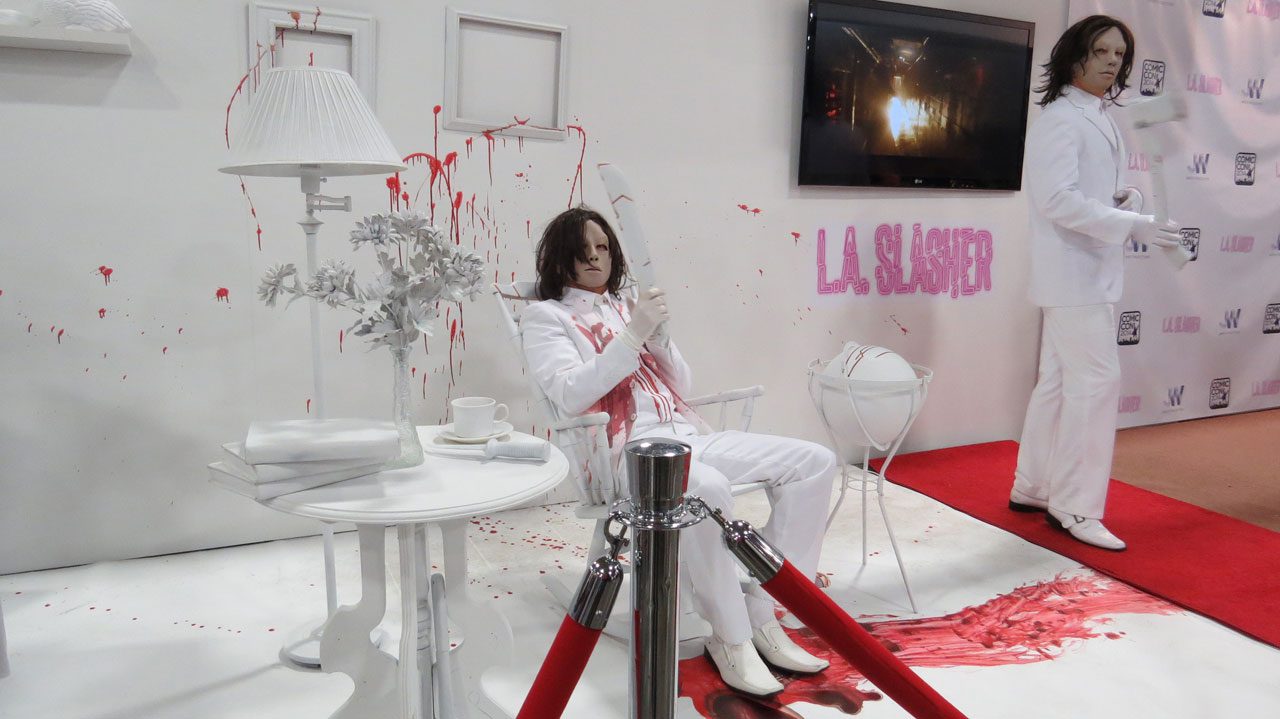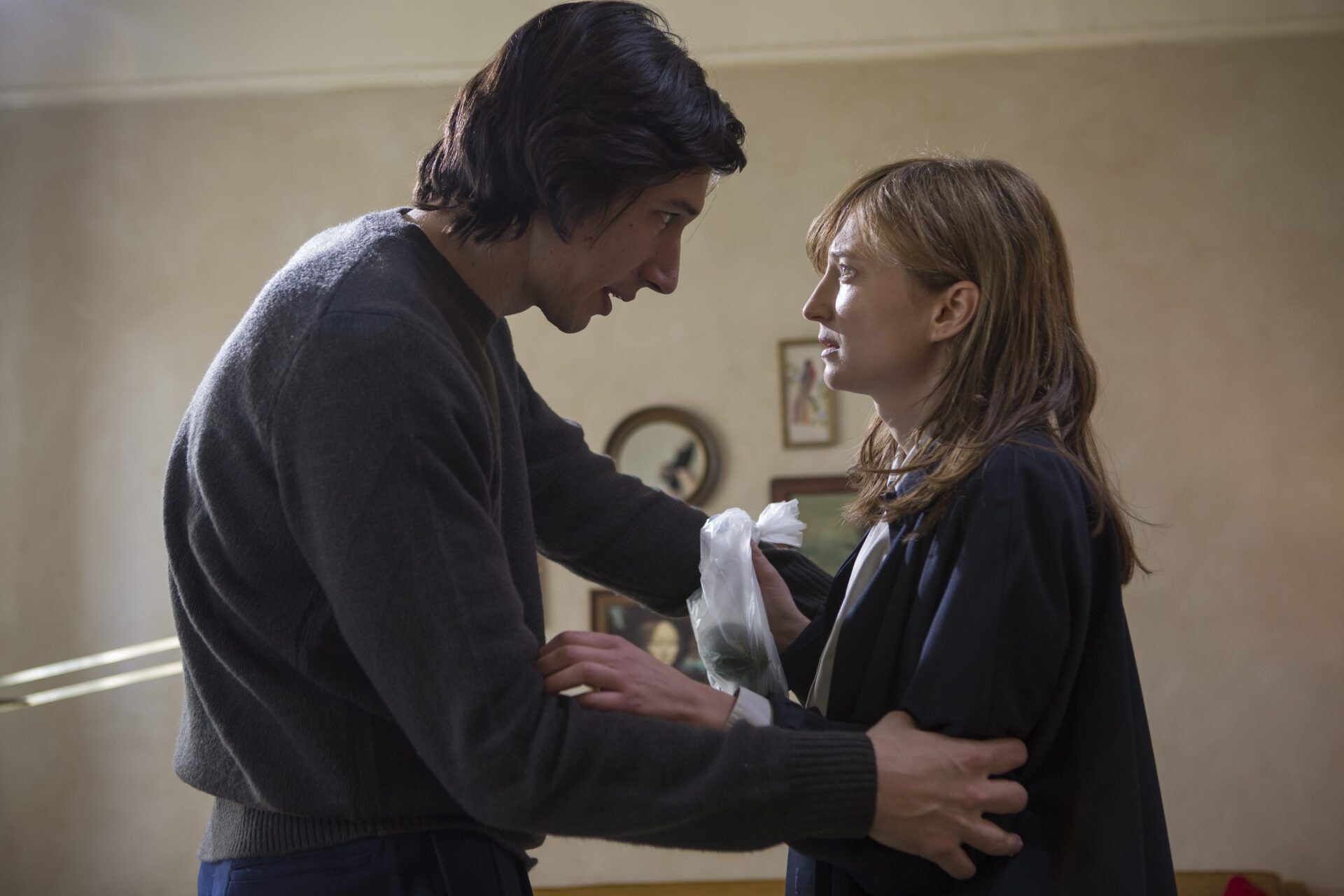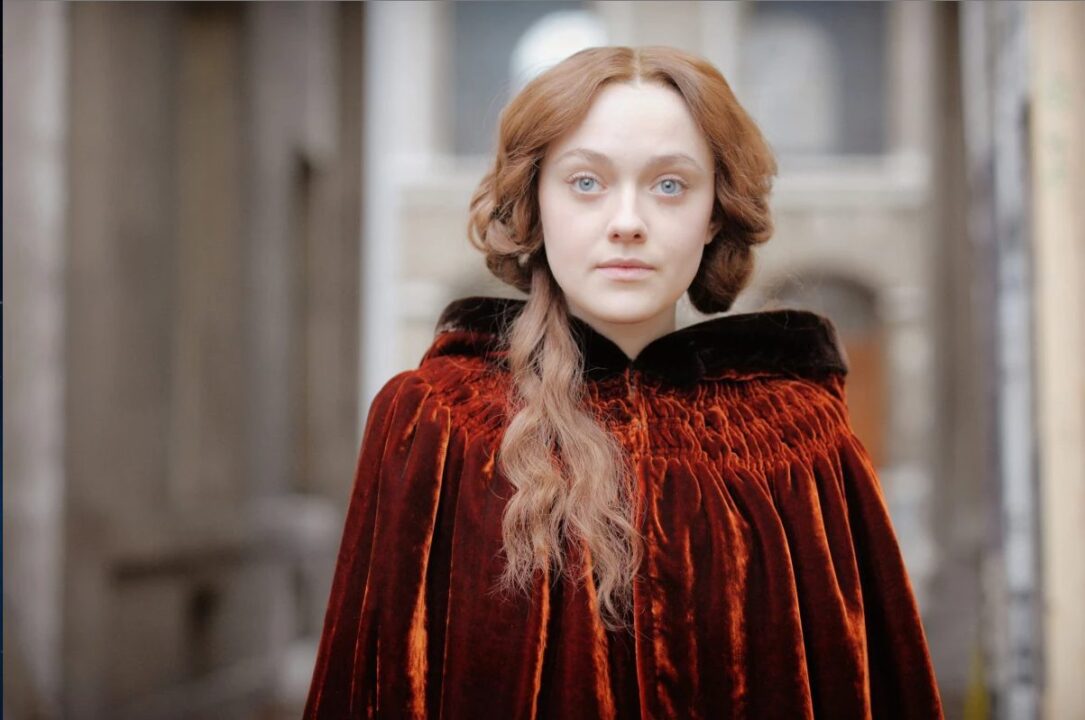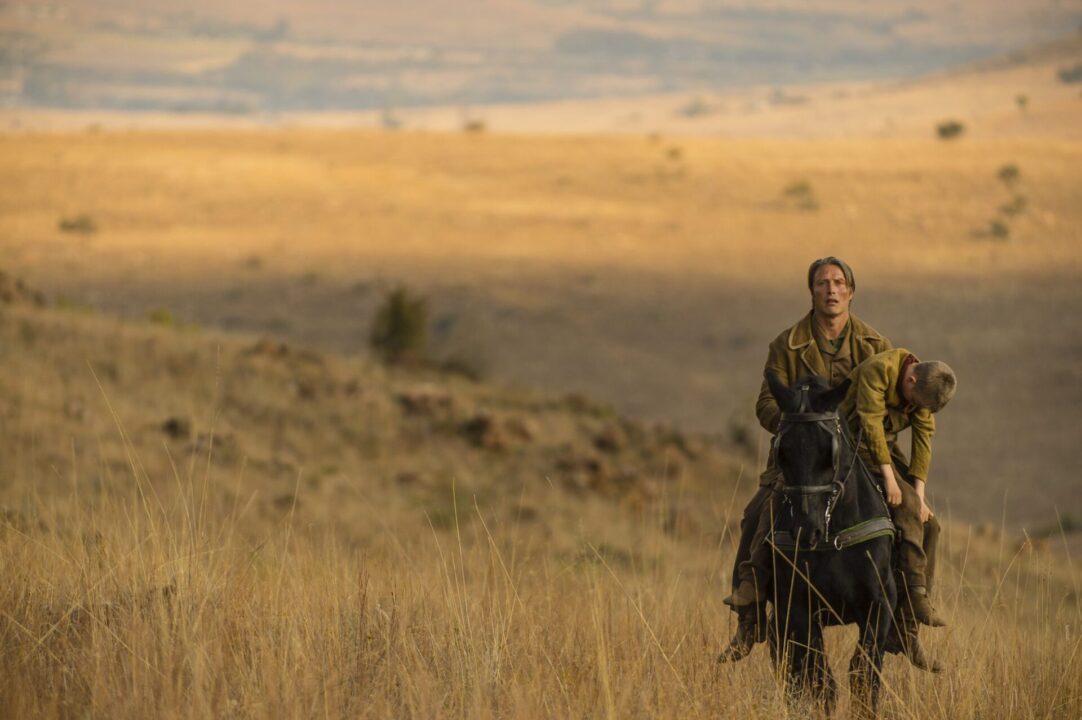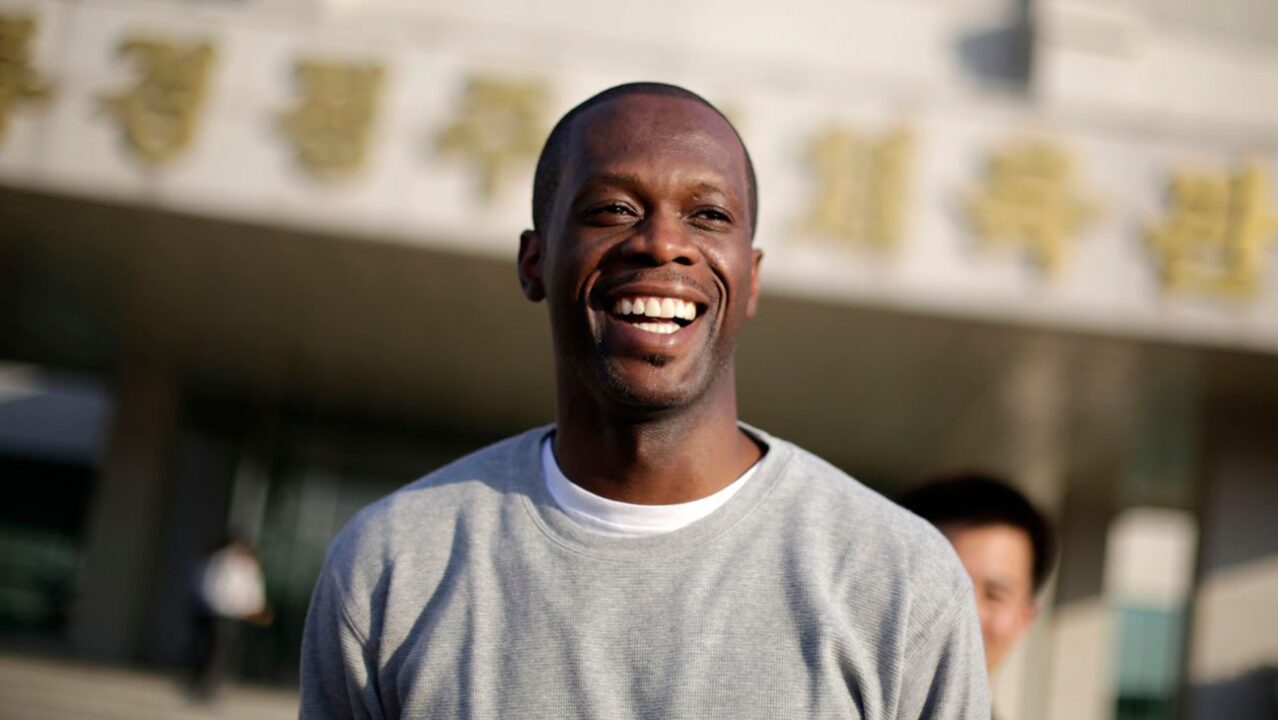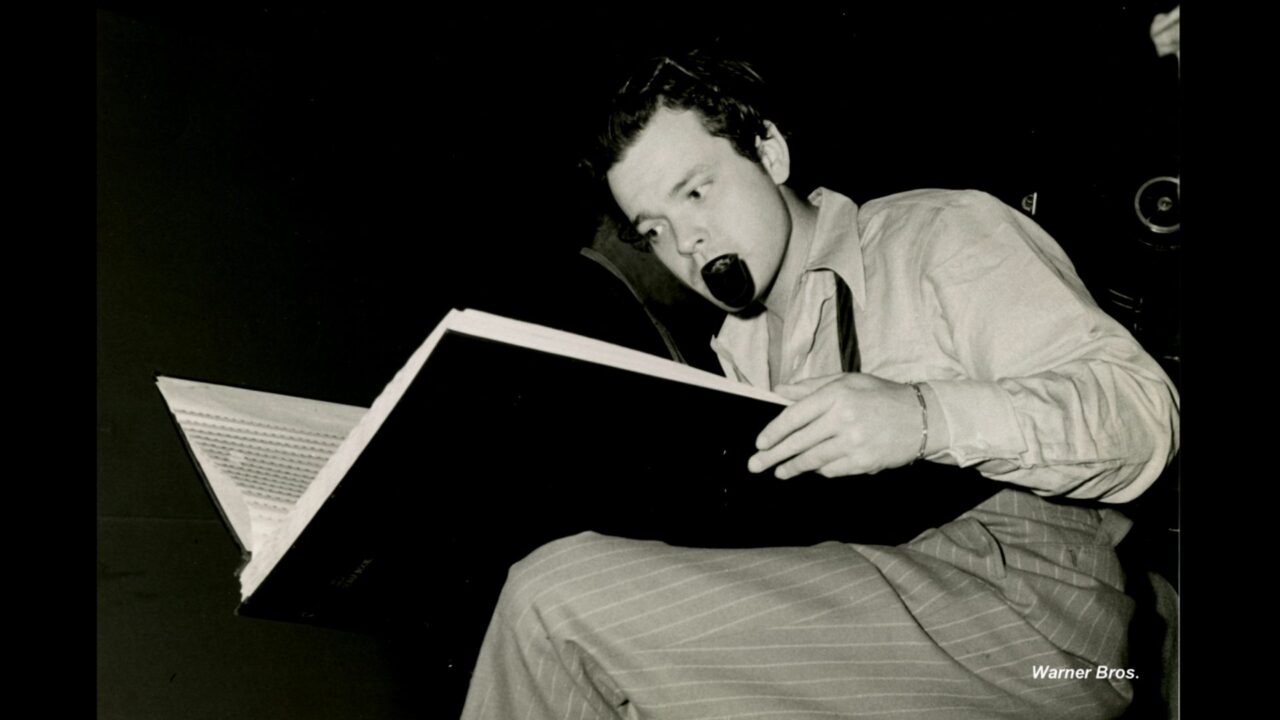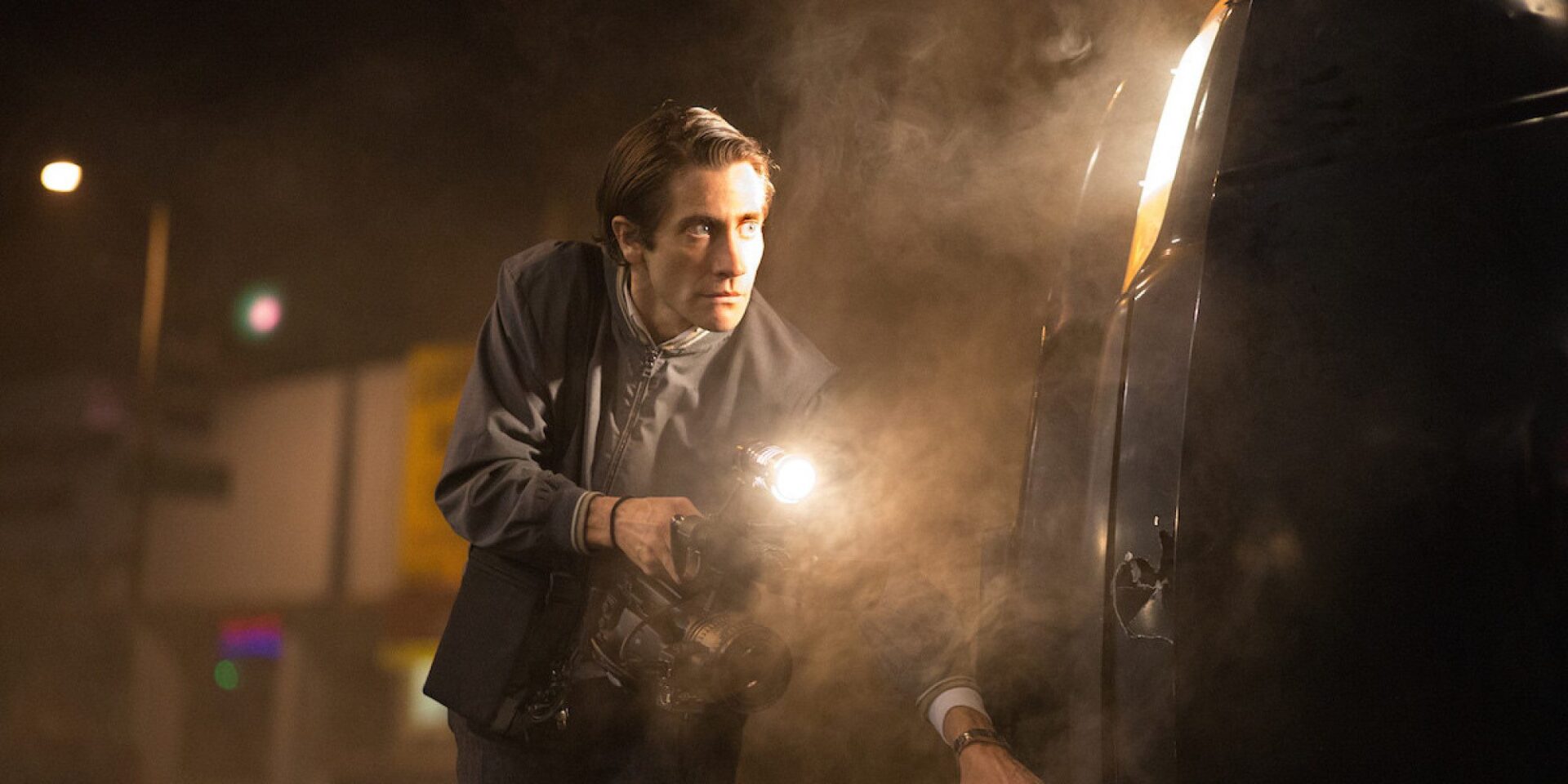Review: 'L.A. Slasher'
I’ve always thought that the best genre satires are created by filmmakers who are, at the end of the day, fans of the material they poke fun at. Horror satires prove no different. 2012's Cabin in the Woods is a lovely homage to horror cliches and goofs, but no matter how spiteful or pointed the satire, a filmmaker still needs to care. Or else, why bother?
In Martin Owen’s horror satire L.A. Slasher, the title character kills in the fashion of reality TV stars and utilizes hashtags and tweets to convey his maniacal messages to America. There’s not much more to say about the plot here, other than how much of a missed opportunity this film is.
For the most part, Owen plays with meta-narrative and meshes the horror genre with the L.A. of someone like Bret Easton Ellis, but Owen’s result is much less effective and thought provoking. The characters are often stripped of their names and simply given titles, such as Mischa Barton as, "the Actress," Eric Roberts as, "the Mayor," etc. As someone who is not only into horror but also the worsening but highly addictive headache of tweet culture, I wanted to love L.A. Slasher with all my heart.
As someone who is not only into horror but also the worsening but highly addictive headache of tweet culture, I wanted to love L.A. Slasher with all my heart.
The first big problem for Owen’s slashfest is a man named Wes Craven. Scream is a franchise that is already well developed in the horror canon, and handles slasher satire with mastery. Owen’s piece doesn’t even come close to being as effective, and feels pointless in this regard. Funny enough, MTV is remaking Craven’s masterpiece into a TV series, which I can guarantee will end up as ultimately shallow as Slasher.
Slasher makes the mistake of focusing a bit too much on the meta elements of its own narrative, and at this point in modern society, the play on celebrity culture and hashtags at this basic of a level just seems stale and painfully conventional. Technology moves fast, while trends move faster. This film might’ve been more ripe a few years back, but only slightly so. This film simply feels outdated and out of style, in the most bizarre way possible.
Fortunately, there are a few positives, including Dave Bautista, who comes through again with some nice comedic acting chops, as seen in Guardians of the Galaxy. The film’s neon vibe marketing was also a neat tool, and makes me wish it lived up to that promotion. Some of the synth-jams in the film are also slightly dance-in-your-seat-able.
L.A. Slasher missed some big opportunities to explore deeper into the celebrity subject matter, as well as take a more artistic approach stylistically to the genre. If you're a die hard fan of slashers, you may want to check this out for a small bit of fun. Otherwise, it feels like a stale satire on the tweet generation, reality TV models, and big time L.A. stars who can’t help but get into loads of drugs and trouble. Meh.
L.A. Slasher opens this Friday in Los Angeles at Citywalk Stadium 19 and AMC Atlantic Times Square 14.
https://www.youtube.com/watch?v=CzWs3YO3Avo
'Hungry Hearts' Review: An Artfully Composed Italian Drama
Considering the opening scene of Hungry Hearts involves a rather comedic and bizarre circumstance involving bowel movements, one might be expecting a bit more of a light-hearted romantic comedy going into this film. This is definitely not the case.
Hungry Hearts is an Italian drama by Saverio Costanzo. Based on the novel “The Indigo Child,” by Marco Franzoso, Adam Driver and Alba Rohrwacher play Jude and Mina, two seemingly likeable newlyweds in love. Soon it is revealed that Mina, who is strangely obsessed with purity and non-traditional medicine, is having complications conceiving a child. Since she doesn’t believe in doctors and thinks their baby is some sacred, mystical ‘indigo child,’ the rest of the film pits husband against wife, as Jude attempts to ensure his son is safe and grows properly. Meanwhile, Mina does everything in her power to keep the child away from modern medicine. Things only escalate from here, folks.
After watching this film, I fear that a large amount of viewers may find Hungry Hearts an unpleasant viewing experience, which may possibly overshadow its artful direction, in a similar vein to movies like Blue Valentine. Though nothing of extreme shock value occurs in this picture and Costanzo isn’t aiming to be inherently provocative, Hungry Hearts is a somewhat tough watch. It is wonderfully rewarding, but nevertheless, a tough watch. Costanzo’s film has an intriguing sense of dread to it, and at times, made me think of the 1981 horror gem Possession, though it never ventures that far into crazy town.
...I fear that a large amount of viewers may find Hungry Hearts an unpleasant viewing experience, which may possibly overshadow its artful direction...
From the very first scene of the film, Constanzo shoots in surprisingly long takes, showcasing two absurdly talented actors who are quite dedicated to their performances here. As far as the cinematography, the film is painfully gorgeous, which isn't a surprise given that it was shot on 16mm by the incredible Fabio Cianchetti, who shot Bertolucci’s The Dreamers among many other classics. Costanzo’s choice to shoot in cinema verite style proved to be one of the strongest points of the film. There are many scenes where Jude and Mina argue and walk through the house as the shaky handheld camera follows them, and this proves to be so intimate it almost feels intrusive.
While both leads in Hungry Hearts won high awards and praise at the Venice Film Festival for their work, it is Driver who shines as the more endearing character. Though Rohrwacher’s performance was quite heartbreaking, it almost feels cheap how she never has a chance. By the end of the film, she’s quite detestable and there isn’t much wiggle room on that. Indeed, the problem lies within her mental illness, but I felt that the filmmaker was on Jude’s side, which could just be a problem within the source material.
If audiences can see past the overall gloom of this film, they will be rewarded. Hungry Hearts has a unique sense of dread going for it, perhaps capturing a bit of a Polanski vibe throughout. In the end, I thought the director was going to push a bit more of a provocative button, but for the most part, it’s dark and tragic, but never veers into absolute depression mode. Costanzo’s piece will surely be of a divisive nature but it is also one of the most thoroughly well-crafted gems of 2015. Though the film may not end up getting the distribution or praise it deserves, Costanzo’s absolute mastery in directing is not something to be overlooked.
Hungry Hearts opens this Friday, June 12th, at the Sundance Sunset Cinema.
https://www.youtube.com/watch?v=q8CfnaUjMDM
Review: 'The Ocean of Helena Lee'
The Ocean of Helena Lee is musician/writer/director Jim Akin’s ode to solitude, childhood and the very fleeting nature of life. The film revolves around Helena (a debut performance from Moriah Blonna), an almost suspiciously existential twelve-year-old who sleeps in her father’s closet in Venice Beach and dreams of being a writer. While her dad Mickey (Tom Dunne) is a strip club-drumming, womanizing beach bum, he is also an inexplicably charismatic and quite serious philosopher when it comes to his pontifications about life.
Right away, the film starts out with voice over, which is always a pretty tough sell and rather difficult to use compellingly. Blonna’s voice is almost like music itself and she does give a genuine reading, stumbling over words at times and speaking ever so softly. While it is clear Akin wanted this voice-over to mimic Helena’s inner monologue and thoughts, the dialogue is rather clunky and awkward. At one point, the picture freeze frames and more voice over occurs, a la Scorsese, which just feels severely out of place. It seems clear to me the film calls for voice-over, it just isn’t handled in a careful enough fashion.
As a narrative film, Helena Lee also falls flat. The script doesn't allow for scenes to be fleshed out enough for viewers to care. There are a lot of moments here and there that feel quite nice, but the film goes back to daydream and montage pieces too frequently and at random. Scenes don’t last long enough for us to invest and then Akin hastily moves onto the next montage.
There are a lot of moments here and there that feel quite nice, but the film goes back to daydream and montage pieces too frequently and at random.
The development of Mickey, which could have easily gone cliche and awry, was actually a better point of watching. The only huge opportunity that feels missed when it comes to Mickey is a better showcase of his drumming, at least aesthetically. Something like Whiplash comes to mind in the sense of a filmmaker making the viewer feel emotion through a character's instrument.
The film does, fortunately, have some positives. The cinematography is lovely and Akin has achieved some gorgeous sequences of Venice Beach, but the camera does a lot of fast paced wandering and tracking through rooms almost in the vein of Paul Thomas Anderson, which feels wildly out of place. Another highlight is Akin’s ability to get two wonderful performances out of his leads. The film, at least, is a great showcase for Blonna, and the fact that it is her debut is pretty startling.
In the end, The Ocean of Helena Lee fails to find its true aesthetic and feels rather unpolished. In addition, the writing, especially the voice over dialogue, feels inauthentic. Helena speaks in unbelievably poetic terms, especially for a twelve-year-old. The film does have some darker themes, and I do applaud the director for handling these well, but I just couldn’t get behind the film as a whole. The Ocean of Helena Lee could have been a tightly crafted ten minute short, but there isn’t enough here to sustain ninety minutes.
The Ocean of Helena Lee opens at the American Cinematheque today at the Egyptian Theatre, May 9-13 at the Steven Spielberg Theatre (within the Egyptian complex) and on May 14 at The Aero Theatre in Santa Monica. Oscar-nominated screenwriter Josh Olson (A History of Violence) and actress/writer/director/producer Illeana Douglas will be moderating the Q&A on Friday, May 8.
Jim Akin’s wife singer/songwriter Maria McKee (Lone Justice) who is also a producer on the film will perform following its opening night at both theatres.
https://www.youtube.com/watch?v=8QTtJt49P2w
Review: 'Effie Gray'
The release of Victorian period piece Effie Gray was initially delayed due to a lawsuit claiming that the screenplay (written by Emma Thompson, who also stars in the film), was plagiarized from other sources. Though Thompson won the cases, she has since opted out of promoting the film’s U.K. release. It is truly a shame that the film’s legal victory doesn’t change the fact that this is a misguided and missed opportunity for Hollywood pictures about female liberation.
A passion project of Thompson's, Gray is the true story of 19-year-old Euphemia Gray and her marriage to famous art critic and watercolorist John Ruskin. Directed by Richard Laxton, the film spans six years, in which we quickly we learn that Effie’s relationship with her husband is just about the worst marriage we’ve ever seen on the big screen.
Dakota Johnson plays the lead role in the film, and while she looks the part (due to a great art and makeup department), she often seems confused and unsure of her performance, like a wide-eyed deer who was not given clear enough idea of how she should embody her character, resulting in a clunky leading character dynamic from the get-go.
Laxton’s collaboration with Thompson results in a much too timid interpretation of this true story, a tale of sexuality and art that could have been much more compelling with different casting and direction choices.
Laxton’s directorial choices are questionable at best, with scenes often playing off like awkward tales of Victorian soap opera. Laxton decides to go full on melodrama and almost completely disregards the concentration that should have been placed upon character study, in a probably unconscious decision that nonetheless destroys the film’s chance to be brave, full bodied, and decisive.
Tom Sturridge does a decent job playing the third wheel in the film’s lifeless and dull love triangle, but, unfortunately, the audience never comes close to caring about who any of these characters end up with. While Greg Wise’s take on John Ruskin is commendable, as soon as the film begins to depict him as an unpleasant man-child, the tone becomes lost due to audience laughter that clearly shows the aspects of the film that just simply don’t work.
Cinematographer Andrew Dunn throws just a bit of life back into the film with some nice shots and a pleasant color palette of dim grayish blues that looks best in the scenes where the characters are around the gorgeous stream. Effie Gray is sure to bore most away within the first act, and for its runtime it seems to last an eternity. Laxton’s collaboration with Thompson results in a much too timid interpretation of this true story, a tale of sexuality and art that could have been much more compelling with different casting and direction choices.
Effie Gray opens this Friday.
https://www.youtube.com/watch?v=5BLzK1z0EII
Review: 'The Salvation'
The murdered family. The quiet, but enraged protagonist out for revenge. The damsel in distress. The ill-tempered, tobacco spitting evil villain. The little shootout. The big shootout. The final shootout. Most of us are so familiar with the tropes and cliches of a Western, we could watch the first five minutes of any film in the genre and predict how it ends with ease. The question is: does The Salvation bring anything new whatsoever to the table when it comes to the classic American Western?
Directed by Dogme95 member Kristian Levring, The Salvation immediately introduces us to our action-hero protagonist, Jon (Mads Mikkelsen), a Danish soldier who has returned to America to reunite with his wife (Nanna Fabricius) and son (Toke Lars Bjarke). But upon this happy reunion, Jon’s family is kidnapped by a couple of drunken men carrying big attitudes and even bigger guns. From here, Jon tracks down the men by himself, only to find his family already dead. Jon kills the men, not knowing their relation to local gang leader Delarue (Jeffrey Dean Morgan). What happens next can be classified as a Liam Neeson-style “one vs. all” Western revenge thriller.
The one character who is so bizarrely underutilized its almost hilarious is played by Eva Green, as the only thing she gets to do in this film is run away and try not to get raped by the gang members.
The Salvation is a film that is all about paying tribute to, and playing on, the overused tropes of revenge westerns, calling to attention certain films in the canon starring Clint Eastwood. The film also seems to be making a subtle homage to the successful video game “Red Dead Redemption” with its similar aesthetic, feel, and the fact that the lead protagonists share certain mannerisms and the same first name.
As far as the cast is concerned, Mikkelsen does a pretty good job with his character, managing the action hero as minimally cliched as possible. The script criminally underused Jeffrey Dean Morgan, however, and even though he is the villain, he gets absolutely zero chance to really show his stuff. Films like Watchmen prove his worth as an almost charming bad guy and this film missed the mark severely. The one character who is so bizarrely underutilized its almost hilarious is played by Eva Green, as the only thing she gets to do in this film is run away and try not to get raped by the gang members. She literally never speaks a word, as her character is mute.
The Salvation throws together all of the classic western tropes and uses some nice cinematic shots, but offers nothing new to the genre. The film ends quickly and with a whimper. The only high point of the film is the score by Kasper Winding, which feels like it added to the dark, moody atmosphere in a positive way. I don’t doubt the passion behind this film. The actors, at least, seem to care about doing the best they can with what they are given. But there is no excuse for taking all of the painfully dull cliched tropes from a genre and adding nothing new or of value to the discussion. Some filmmakers are still making the western work in rather unique ways. Just look at Kelly Reichardt’s Meek’s Cutoff. It can be done.
https://www.youtube.com/watch?v=LwBS3a9HOWI
Review: 'Sweet Micky for President'
There is no denying that most political documentaries tend to be a bit of a hard sell, at least when it comes to the mainstream audience. Many 'talking heads' documentaries put the viewer to sleep immediately. Filmmakers must strive to go above and beyond in this sub-genre if they want to create a sense of urgency and care within the viewer, as opposed to one who just mindlessly absorbs political facts. Luckily, director Ben Patterson has found a way around these issues and has succeeded in creating a documentary film which makes us care deeply for its characters and their many plights.
Patterson’s Sweet Micky for President begins with a summarized recap of the last century of Haitian politics, underlining the corruption and unjust actions of its leaders. The country is presented as primarily divided between families who support the old, traditional rule and the families who require an immediate change in leadership. The narrative then shifts to the aftermath of the devastating earthquake in 2010, with the implication that someone new and fresh must attempt to pull Haiti out of its rut and begin a new saga of hope. The film introduces us to one its leading players, former Fugees band member Pras Michel, as he begins his campaign to help former Haitian superstar Micky Martelly run for President of Haiti.
Even for someone with no background in the political issues going on in Haiti, the film evokes emotion and informs with minimal subjectivity.
From here, the film takes a curious leap and begins to concern itself with its many ties to music. Haitian rapper and former Fugee Wyclef Jean joins the race, and the rivalry between Michel and Jean is revealed. Martelly serves as a middleman between the two, demonstrating his ease with achieving peace within a group. Iconic film star Sean Penn also pops up in the film, seemingly out of nowhere, in support of Martelly’s race. The film showcases many concert scenes of Martelly, Michel and Jean, which makes for a nice, quick break from the politics presented.
Some of the most interesting parts of the film explore a somber Pras Michel, as he faces various difficulties in the election. His cathartic moment when he performs on stage during a Fugees reunion is surprisingly touching. Michel has an interesting drive to him that could have been explored further, in my opinion, and he seems to disappear at random points in the film. That being said, this makes sense, considering the documentary is primarily about Martelly and Haiti, not Michel.
Sweet Micky for President is a thoughtful and emotional documentary that took me by complete surprise. While its primary focus is the well-being and political success of Haiti, it tackles a number of different issues including real-life rivalries, fame, and music. Even for someone with no background in the political issues going on in Haiti, the film evokes emotion and informs with minimal subjectivity. Director Ben Patterson uniquely combines music, peace, love and unity with politics and its filmic product is very pleasing.
https://www.youtube.com/watch?v=nHgcOcUYZ9g
Review: 'Magician: The Astonishing Life and Work of Orson Welles'
A documentary about one of the most legendary men in all of cinema could go one of two ways: on one hand, the filmmaker has an enormous archive of material to pull from, but on the other, is there really anything left to say about Orson Welles that hasn’t already been said a thousand times? The new documentary Magician: The Astonishing Life and Work of Orson Welles by Chuck Workman is a light-hearted, but nifty little film recounting the career of the big man himself.
For years, Workman has cut together many montages for the Academy Awards. In Magician, he implements a similar ‘clip show’ style. The film’s most entertaining clips are snippets of Welles’ speaking at various events and interviews. Documentarians should always tread lightly when it comes to talking heads, as too much of this can quickly become dull, but luckily, Workman brought together some of the most distinguished scholars to discuss Welles, including biographers Joseph McBride and Simon Callow, and renowned critic Jonathan Rosenbaum. The most sentimental bits of the film come from a conversation with Welles’ partner Oja Kodar, who emotionally recounts the sacred time she spent with the Magician.
Workman’s Magician isn’t the defining Welles’ documentary, as it is rather short and not packed with too much information, but it’s a nice place to start for filmgoers who don’t know much about Welles.
Magician begins with Welles’ youth and personal growth as a young man, but grazes through this semi-quickly to make its way up to his successful cinematic years. To the everyday film-goer who shares an average interest in Welles, the information provided here will seem fresh, relevant and fairly entertaining. However, due to the ‘highlight reel’ nature of the documentary and swiftness at which it glances Welles’ career, any film school veteran or hardcore cinephile nerd will find much of the information repetitive and simple.
In many ways, Magician barely scratches the surface, which isn’t surprising considering the scope of its subject. While the film contains a few ‘exclusive’ interviews, it uses a large amount of old footage of Welles’ which has long been accessible via YouTube. The film also touches on Welles’ many unfinished films like Don Quixote, as well as some of the leading factors as to why he was somewhat troubling to the studio system in his later years.
Workman’s Magician isn’t the defining Welles’ documentary, as it is rather short and not packed with too much information, but it’s a nice place to start for film-goers who don’t know much about Welles. It’s essentially a highlight real, but a pretty good one at that. The film leaves the viewer with the concept of Welles as a mysterious and brilliant man, who was somehow living in a creative space decades ahead of his time. We do see some canonical clips from films like Chimes at Midnight and The Third Man, but most of all, we get a very flattering and touching portrait of Orson Welles- one of the most influential men to ever set foot in Hollywood.
Magician: The Astonishing Life and Work of Orson Welles is in theaters today.
https://www.youtube.com/watch?v=VN8L7TsjfDk
Nightcrawler
Jake Gyllenhaal lost nearly 30 pounds for his leading role in Nightcrawler, and the result is terrifying. His eyeballs are massive like they’re about to pop out of his skull. His cheekbones are sharp enough to cut a man, and his entire face looks as though it is being pulled down towards the underworld (Read our interview with Jake Gyllenhaal, who spoke of the transformation and more, here).
Nightcrawler is the directing debut from Dan Gilroy, who has written screenplays for several Hollywood pictures including The Bourne Legacy and a story credit for Real Steel. The film centers around Lou Bloom (Gyllenhaal), a skeevy but cunning thief, as he rises to power in his new field of crime journalism. Bloom’s job involves arriving early at crime scenes in order to shoot video of the gore and violence, with the ultimate goal to sell footage to news stations. It’s basically a violence-based paparazzi type of gig. Lou follows one rule that was given to him by the local news network: if it bleeds, it leads.
But Bloom isn’t a regular cameraman. His personality is obsessive, his conversations inhuman, and his methods pure genius. His movements and actions are carefully planned, and he knows how to manipulate everyone around him. His human interactions are lacking true emotion. Lou Bloom simply cares about doing his job well.
As a directing debut, I am blown away by Gilroy’s work here. Right off the bat when the movie begins, we are granted some of the most stunningly gorgeous shots of L.A. that I’ve seen. Robert Elswit (who regularly works with Paul Thomas Anderson) shoots iconic locations in L.A. like Venice Beach and Santa Monica Boulevard with sleek minimalist style. Cross streets and intersections seem deliberately chosen in an effort to force the viewer to point out and scream, “I know that street!” Elswit shot Nightcrawler both digitally and on film.
The real show here lies within Gyllenhaal’s performance...(primarily due to the weight loss), Gyllenhaal disappears and all we are left with is Lou Bloom, who is wild eyed and a complete lunatic.
Rene Russo (also Gilroy’s wife) plays Nina, the maniacal and shameless boss that graciously accepts Lou’s graphic videotapes in order to receive higher ratings on the network. Russo truly shines here as Bloom’s strangely masculine teammate. In ways, Nina is very similar to Bloom, in that she knows she has to do unpleasant things to get what she wants.
The real show here lies within Gyllenhaal’s performance. Now, Jake has been fantastic in films like Zodiac, Enemy, and Prisoners, but he’s always still the ruggedly handsome Jake Gyllenhaal when you freeze the frame. But here in Nightcrawler (primarily due to the weight loss), Gyllenhaal disappears and all we are left with is Lou Bloom, who is wild-eyed and a complete lunatic. What Gilroy and Gyllenhaal have created here is a truly captivating character to watch on the screen. There isn’t a single film lover out there who won’t be completely enamored with Lou Bloom’s slow descent into darkness.
Nightcrawler is a remarkable debut from first-time director Dan Gilroy. While the film’s media satire trumps David Fincher’s Gone Girl with ease, this picture is all about Jake Gyllenhaal and his opportunity to disappear for once. It’s a stylish L.A. Taxi Driver with a hint of 80’s detective drama. Nightcrawler is the only film of 2014 that caused me to sit in the theater with a dumb grin on my face for two hours straight. It’s my favorite of the year, with its only possible rival (perhaps) being Inherent Vice.
Nightcrawler is in theaters this Friday.
https://www.youtube.com/watch?v=u1uP_8VJkDQ

